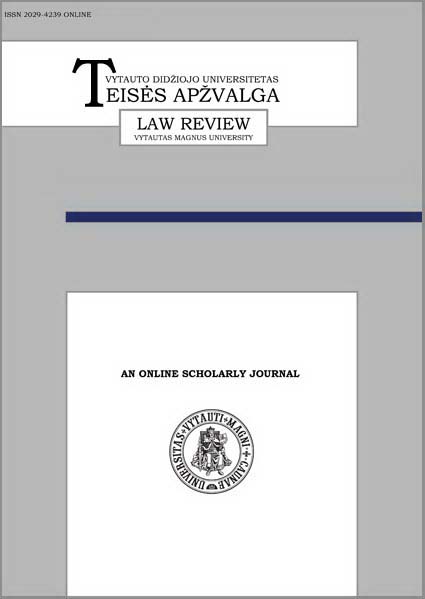Sunkiomis ir nepagydomomis ligomis sergančių asmenų orumo apsaugos reikalavimas – tarptautinės ir nacionalinės teisės normos bei praktiniai jų taikymo aspektai
The Protection of the Dignity of Terminally Ill Persons – Requirements in International and National Law, and the Peculiarities of Their Implementation in Practice
Author(s): Kristina Astromskė, Rūta Butkevičienė, Jolanta Kuznecovienė, Eimantas Peičius, Gvidas UrbonasSubject(s): Law, Constitution, Jurisprudence, Civil Law, Health and medicine and law, Gerontology, Labour and Social Security Law
Published by: Vytauto Didžiojo Universitetas
Keywords: Human dignity; Palliative care; Advance directives; Quality of healthcare;
Summary/Abstract: The issues concerning human rights and freedoms in the field of health care are of utmost relevance and require particular attention. Especially as ageing of population, advancement of biomedicine, a better quality of health services and a whole range of other factors lead to longer life expectancy, require more health resources and, at the same time, open new legal and ethical dilemmas in dealing with the decisions about the end-of-life care. At the last stage of illness and life of patients, the aspects of quality of life, the burden of caregivers, social and financial needs cannot be ignored. Various studies show that people stricken with serious and incurable diseases also face obstacles to the implementation of human rights, such as exclusion, discrimination, inaccessible essential care, and other healthcare services. Therefore, one of the fundamental issues in this area is finding the best way to ensure the dignity of patients in the final stages of life, which is an essential background to the full application of fundamental rights and freedoms of every person. In line with the Council of Europe's recommendations on the protection of the human rights and dignity of the terminally ill and the dying, we sought to clarify the application of the measures proposed in the recommendations in accordance with international and national law as well as with the ethical principles of medical practice. When assessing research studies, health policy, and the development of legal regulation in Lithuania, it was found that the actual protection of human rights and dignity in health care requires, first of all, unambiguous legal provisions and subsequently sufficient organizational measures, the continuous education of medical practitioners, in order that human rights and non-degrading conditions for human dignity are guaranteed by ensuring good quality of health care, including acceptable and accessible palliative care. According to the obligations of the State to protect human rights and the case-law of the European Court of Human Rights, there must be a balance found between respect for human dignity and the right to self-determination while establishing the regulation of options and procedures relating to end-of-life decisions. At the same time, the need for preserving other interests of vulnerable persons and society cannot be ignored. That is why the prevention of the abuse of seriously ill persons, which may arise in the care system while pursuing the objectives incompatible with human dignity, is also essential. It is necessary to agree on the precise and unified use of legal concepts when determining the possibilities to refuse treatment, life support, or resuscitation procedures, and to establish a regulation that meets the needs of society, which can be disclosed through the public debate and research. A comprehensive integration of societal values and conditions, that meet the needs of patients and their caregivers, into the provision of health services, and into the legal rules, governing the relationship of patients and healthcare providers, could make a significant contribution to the implementation and the protection of human dignity, not only in the provision of palliative care, but also in all other areas of health care services.
Journal: Teisės apžvalga
- Issue Year: 2021
- Issue No: 1(23)
- Page Range: 3-21
- Page Count: 19
- Language: Lithuanian

